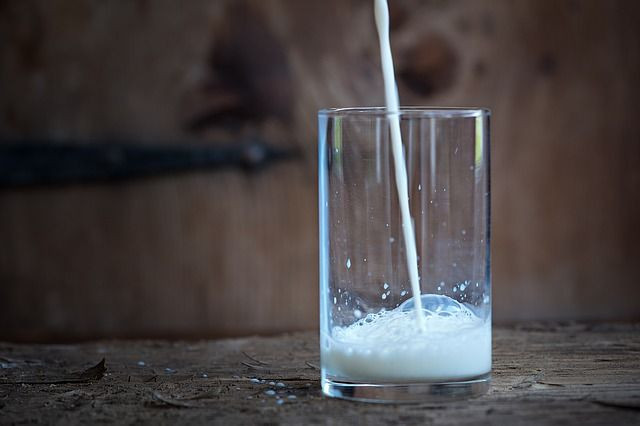Health Benefits Of Whey: Dairy Protein Shakes May Lower Blood Pressure, Improve Cardiovascular Health

A hefty dose of dairy protein may be good for the heart, suggests yet more research recently published in the American Journal of Clinical Nutrition.
Researchers recruited 42 volunteers with mild or pre-hypertension to take part in an extensive trial. For three separate 8-week periods in random order, they drank 2 shakes a day that contained either whey, casein, or no protein at all. Regardless of which protein they had, the researchers found, the remaining 38 participants experienced significant reductions in total cholesterol and improved cardiovascular health compared to the control period. But the greatest and most immediate changes were seen when they drank whey, indicating its superiority over casein. Specifically, drinking whey led to modest reductions in daily and overall blood pressure as well as triacylglycerides, the primary component of body fat.
“The results of this trial are very exciting. It shows the positive impact that dairy proteins can have on blood pressure,” said lead author Dr. Ágnes Fekete, a scientist at the UK’s University of Reading, in a statement. "Long-term studies show that people who drink more milk tend to be healthier, but until now, there has been little work to evaluate how dairy proteins affect blood pressure in particular."
Though the study was small, Fekete’s team was able to measure any potential effects on cardiovascular health as they happened, while controlling for other random factors — a rarity in nutritional science, which often relies on self-reported surveys and examinations after the fact.
Both whey and casein improved overall blood flow, while also reducing the level of adhesion molecules in the blood. Though these molecules allow cells to better stick together, which is important when repairing wounds or otherwise fighting disease, they also can contribute to chronic inflammation and the forming of plaque, both risk factors of later cardiovascular disease.
Unlike other studies, however, the proteins weren’t shown to reduce the level of angiotensin-converting enzyme (ACE) circulating in the body. ACE increases blood pressure, and many blood pressure medications work as ACE inhibitors. It’s possible though, the researchers said, there simply weren’t enough participants in the study to see a similar effect for dairy.
Citing earlier research, the authors noted that regular whey consumption could reduce the risk of cardiovascular disease by as much as 8 percent, and casein consumption by 1.4 percent. The amount the volunteers took in — 56g daily — is about equal to what bodybuilders and athletes ingest while training, said co-author Dr. Ian Givens, also of the University of Reading. The shakes were a combined 214 calories, or just about 10 percent of most people’s recommended daily intake.
The findings are encouraging, but there’s still more work to be done.
"We will now be looking to further understand the impacts of milk proteins on other markers of cardiovascular health and over a longer period of time," said Givens.
Finding out exactly how much dairy protein is needed to get the optimal heart health boost is also a priority, the authors said.
Source: Fekete A, Giromini C, Chatzidiakou Y, et al. Whey Protein Lowers Blood Pressure And Improves Endothelial Function And Lipid Biomarkers In Adults With Prehypertension And Mild Hypertension: Results From The Chronic Whey2go Randomized Controlled Trial. American Journal of Clinical Nutrition. 2016.



























